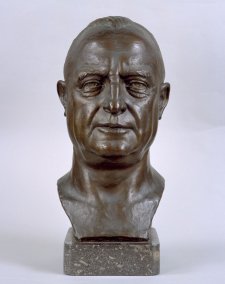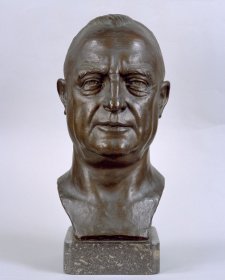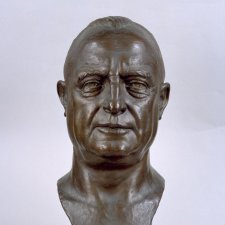Sir Edward Wheewall Holden (1885-1947), industrialist and politician, was the son of Henry Holden, industrialist and civic leader, and the grandson of James Alexander Holden, Adelaide leather and saddlery business owner. The family firm won large saddlery contracts during the Boer War. After 1909 it branched into motor-body trimming, making hoods, bodies, and motor cycle sidecars. Edward Holden started work at Holden and Frost Ltd after graduating with a BSc from the University of Adelaide. His prototype for a standard body for imported chassis, made in collaboration with Dodge distributor SA Cheney, led to the formation of Holden's Motor Body Builders Ltd in 1917, with Edward as Managing Director. Producing bodies for the American-owned General Motors from 1923, by that year Holden's was accounting for half the national output of car shells. Edward Holden oversaw the expansion to a large plant at Woodville (the largest outside North America) incorporating the latest technology including automated production lines. By 1929, with 3400 workers, Holden's was the biggest body-builder in the Empire, but late in the year General Motors revised its orders, which had represented about 60% of Holden's output. With the firm struggling to survive, the following year Holden set out for the USA to discuss amalgamation with GM. In 1931 GM bought the company, taking complete control while maintaining its Australian character. Holden became chairman of General Motors-Holden's Ltd. He was its sole managing director until the arrival of Englishman Sir Laurence Hartnett from GM subsidiary Vauxhall Motors in 1934. Embittered, Holden turned to other affairs before resigning from GMH in early 1947. As a Liberal in the Legislative Council from 1935 to 1947 he strongly supported initiatives to attract industry to the South Australia. Honorary controller of army canteens in 1939-1945, after the war he continued with many and various directorships and corporate service with bodies including the South Australian Industries Assistance Corporation, the Chamber of Commerce, the Bank of Adelaide and Australian Cotton Textile Industries. Holden's energetic contribution to public life was perpetuated by his daughter Nancy (later Dame Nancy Buttfield), the first South Australian woman in an Australian parliament.







